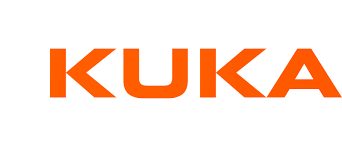 Productivity is and, shall continue to be an important quantitative measure for the food and drink industry, in an ever evolving and competitive market. So why aren’t more manufacturers within this sector investing in automated processes and embracing robotics?
Productivity is and, shall continue to be an important quantitative measure for the food and drink industry, in an ever evolving and competitive market. So why aren’t more manufacturers within this sector investing in automated processes and embracing robotics?
One reason could be the access that manufacturers have had to low cost labour versus the investment in capital equipment.
The food and drink sector is the largest manufacturing sector in the UK, generating some £77.4 billion towards the UK economy. However, as the UK population continues to grow and peoples eating habits diversify, a focus on product development and application evolution shall be necessary to ensure that manufacturers are able to continue to respond to consumer choice and, address the omnipresent trend towards convenience and value.
Current economic and political uncertainty does cast a shadow on future manufacturing capabilities, especially so the reliance upon low cost labour from the EU. Whilst it is impossible to predict what may happen, should business owners be more proactive in ensuring their operations are future proofed and consider now, implementing automated processes within their supply chains?
The food and drink industry is a resilient one, it has to be. Consumer tastes and market trends change constantly. Therefore, adaptability is key.
The adoption of automated robotics into the food and drink industry is on the increase, though a majority of these tend to be end of line, packing and palletising applications. It is upstream within the processing and packaging processes that manufacturers need to consider autonomous applications. But why?
Product throughput is imperative to the success of any supply chain operation. High volumes and multiple product iterations within the food and drink industry dictate that employers need a vast and varied workforce, equipped with a variety of skills needed to address a plethora of tasks along the production line. But this presents a challenge to manufacturers who, often than not, operate on very narrow margins but very high quality standards.
The need to provide customers with a consistent calibre product, whilst turning a profit dictates that robotics and automation are a natural fit, yet, we are still to see automated robotics fulfil its potential within the food and drink industry. So, let’s consider the advantages that can be afforded as a result of implementing automated processes.
- Quality and safety – Product quality are prominent considerations for both manufacturers and consumers. The food and drink industry must adhere to stringent food safety, health, environmental and quality standards. A well-managed food chain is essential to the health and safety of its consumers; therefore, food safety is a critical issue that must be effectively managed. Robots designed for use in applications involving direct contact with foodstuffs incorporating corrosion-resistant surfaces, food-compatible lubricants and stainless-steel parts ensure the highest level of hygiene. Business owners can also react quickly to changes in health and safety standards. A potential change pf process in one area can easily be replicated in other areas without costly downtime.
- Reputation and traceability – Businesses rely upon the reputation of their brand to ensure good relations with both customers and consumers. The use of robotics with the food chain can reduce product contamination and/or damage. Product recalls are costly and can be damaging to future revenues, in extreme cases it can ruin a brand. Automated processes offer some protection against product recalls whilst also providing an enhanced level of traceability. When a company can trace the source of their raw products, they can ensure a consistent supply of quality product, satisfy health and safety considerations and return a cyclical profit.
- Accelerated throughput and streamlined processes – Until recently it was unthinkable that food harvesting, preparation, handling and distribution could be managed by machines, but now, technology and robotic systems are evolving that allow business owners to accelerate and streamline these processes. Complete automated systems within the food and drink industry are within reach. Smart factory concepts are being implemented within several other industries, aligned with industry 4.0 and the IoT (internet of things). The rise of the ecommerce industry accounts for a huge rise in same day and next day delivery options being made available to today’s consumer and, the food and drink industry is no different. Robotics and automation provide manufacturers with the means to embrace innovation, aligned with consumer demand, to address high-volume production, produce items at much tighter tolerances and within industry regulations.
Whilst we don’t want to quote the ‘B’ word, manufacturers now need to look at their production cycles and consider that access to low cost labour may reduce should we leave the EU. The solution is to adopt automated processes, to maintain production momentum and remain competitive. Innovation provides a significant growth opportunity and, should be embraced.
For more information please contact: sales@kuka-robotics.co.uk or call 0121 505 9970

